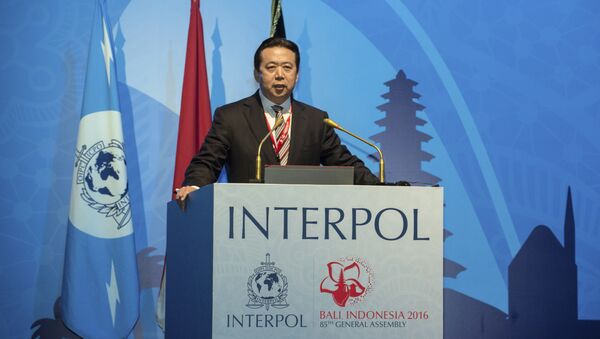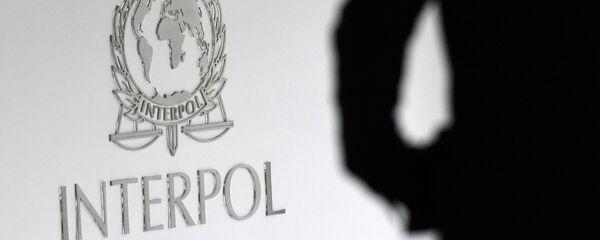Meanwhile, Andrei Karneyev, head of the Moscow State University’s Institute of Asian and African Studies, told Sputnik that Meng Hongwei’s election as the head of Interpol is indeed a momentous occasion for China. He explained that when Beijing joined Interpol in 1984, when China entered the period of reforms and transparency, Interpol membership became "a sign of improvement in relations with the rest of the world, evidence of the Chinese government’s willingness to contribute to the fight against trans-border crime."
"Today, when anti-corruption campaigning is an integral element of Xi Jinping’s domestic policy, Beijing’s cooperation with other countries’ law enforcement agencies is especially important. In accordance with the UN Convention against Corruption, UN Convention against Transnational Organized Crime and other international agreements, today China maintains judicial cooperation with over 100 nations," Karneyev said.
Meng Hongwei was born in 1953. He was appointed the Deputy Minister of Public Security in April 2004, and in August the same year he also became the head of the National Central Bureau of Interpol in the country. Therefore, Karneyev remarks, he already has considerable experience in working with the Interpol HQ in Lyon.
"The new president’s term lasts four years. China will definitely use this time period to step up the efforts to bring to justice corrupt high-ranking government officials hiding overseas. Also, the new president will have to handle the delicate issue of Taiwan trying to obtain observer status in Interpol," he said.
It should be noted that some Western human rights groups have already criticized Meng Hongwei’s appointment, claiming that Beijing may attempt to misuse his new powers in order to persecute political opponents in the country. However, Karneyev pointed out that these concerns appear unfounded as Interpol’s charter strictly prohibits the organization from "any intervention or activities of a political, military, religious or racial character".



